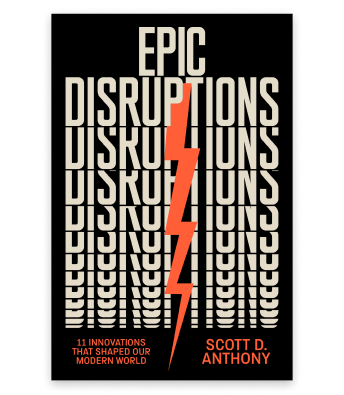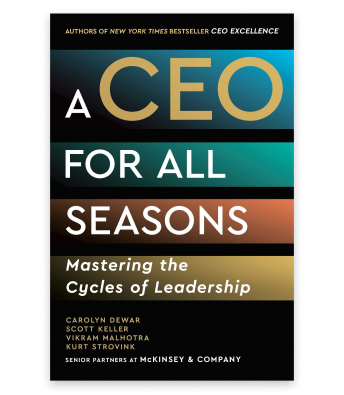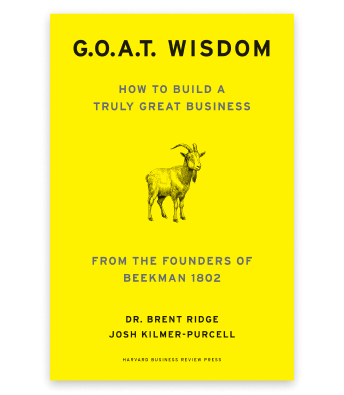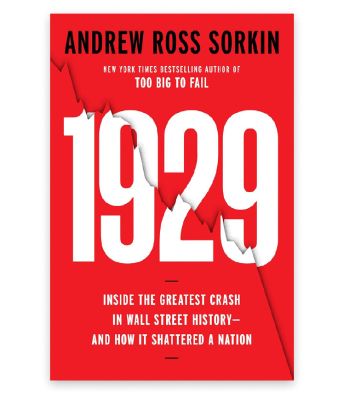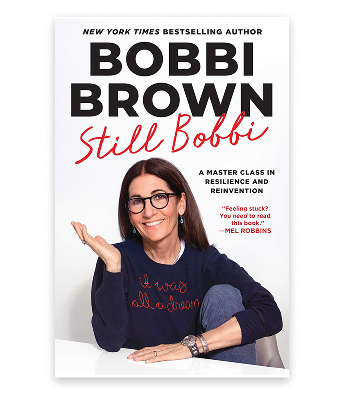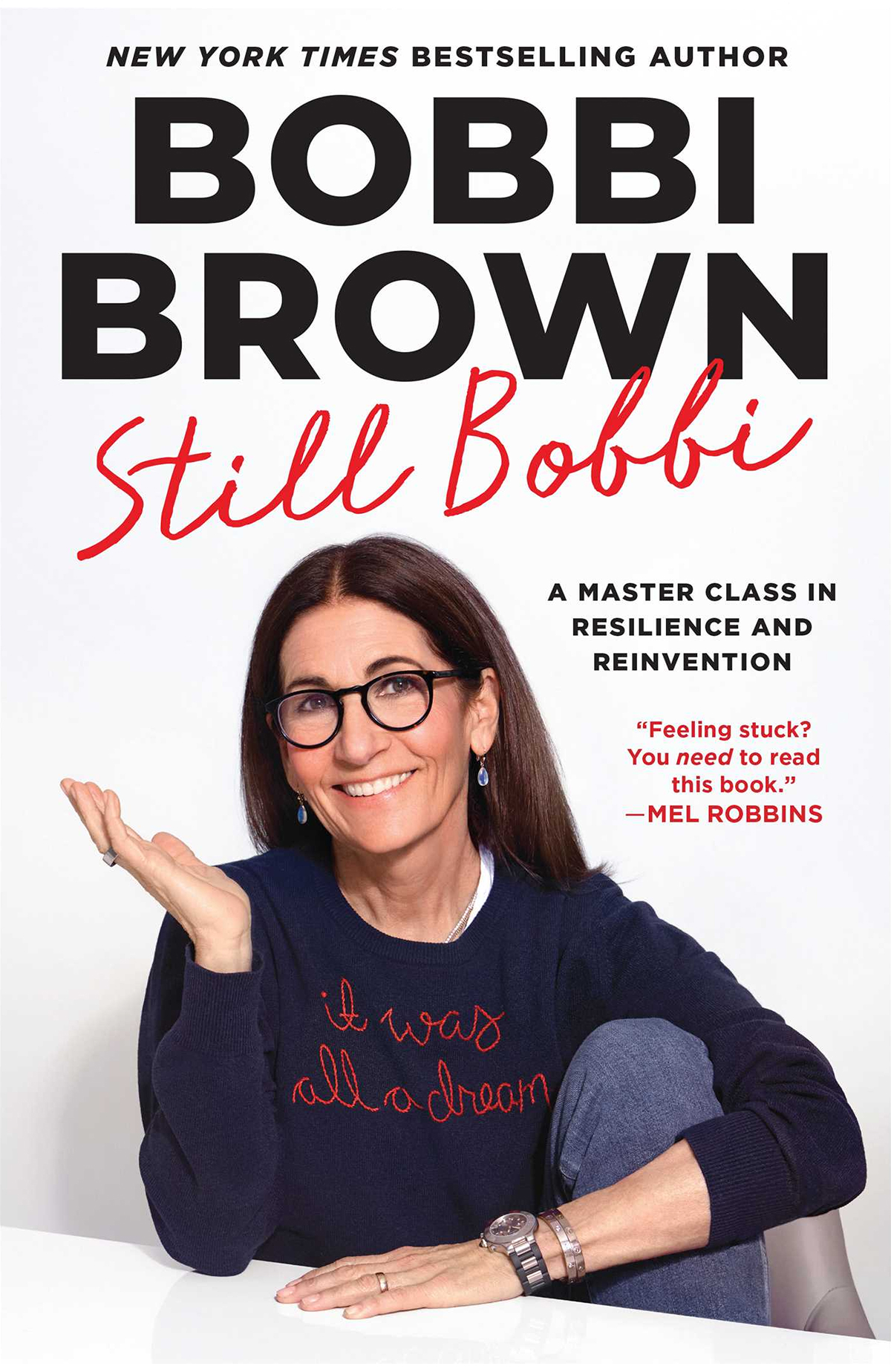[MUSIC PLAYING]
Hello. I'm BJ Goergen, the head of Morgan Private Advisory at JPMorgan's Private Bank, and I am joined by Bobbi Brown at her beautiful store, Jones Road, in Montclair, New Jersey. Thanks so much for having us here.
Thank you for coming.
We all Bobbi as an entrepreneur, as a founder of two really successful businesses. She's also an author and most recently wrote Still Bobbi, which we're featuring on JPMorgan's Next List for 2026. Our Next List is a collection of books and experiences that are aimed at inspiring big thinking and bold innovation for the year ahead. And so, Bobbi, you've had an incredible journey in the beauty space.
You've evolved from being a makeup artist to founding several companies, and we're going to talk about all of that today. But I really want to start on the beginning. So what inspired you in the very beginning from being a makeup artist to starting your own company?
Just being a makeup artist, I realized, and by the way, it was the '80s, that most of the makeup on the market was really hard for me to put on my models and my customers.
Hard in what way?
They didn't look natural, didn't look like I wanted it to look. The foundations were different colors on the skin. The blushes were just colors that needed blending. You used to come with a skinny little brush. The lipstick smelled bad. They were dry. They were greasy. I didn't really like anything, so I spent most of my makeup artistry career learning how to fix certain things. Foundations that didn't match, I went and got yellow, and orange, and red, and blue pigments and adapted them depending on what the girl's skin looked like. And I did that with so many of other people's products that I fixed, and when I started to make my own products, I knew where to start. I needed a foundation that had a little yellow undertone. It didn't exist.
So were you always entrepreneurial or did you stumble in it by accident?
Well, I had my first store, a jewelry store, with my two friends, Lynn and Janice called LBJ. It was an adorable little store, but there was no foot traffic because it was in my basement. The rent was fine, but no one really walked by.
So it's just in your blood. I read in your book that you also were bored in college. Like, it's just you've always been creating.
Well, bored in college? I'm bored now. I'm so busy. How could you be busy and bored? I am both of those things.
It's just the way that you're wired.
It's the way I'm wired.
So you write in Still Bobbi, how it was really hard to break into the New York Fashion scene. It was very intense. How did you do something different than everyone else to break through?
Well, honestly, I think it wasn't about my talent. Because I wasn't, ultra talented. I had my own thing, my own style. I think I broke in because people liked having me around. I did things, like show up on time, said hello to people. I was nice. I asked them what they thought. I didn't mind changing something if someone didn't like it. So I think I was just easy to work with.
And then I was focused on getting better. So I worked really hard on getting better skills.
Those are like life lessons anyone can take and apply. So in Still Bobbi, you referenced your philosophy, which is a no-makeup makeup philosophy, and you talk about it coming from two iconic women in your life, your mom, who was very glamorous, and your aunt, who was a little bit more practical. Will you talk about the two of them, their styles, and how that led to your own philosophy?
Sure I'm lucky to have had them both. I am definitely somewhere in between both of them. My mother was incredibly glamorous. She was, in her early life, Jackie Kennedy. I think my mother in her later life was Jackie Collins. So she went from always glamorous, always fancy. Aunt Alice, like, literally salt of the Earth, her older sister by six years, had really short hair, never colored it, only wore flat shoes. She was 5 foot tall on a good day, and my mother wore the highest shoes, the tightest pants, and they were so different.
And I was lucky enough to have both of these women in my life.
And so how did you try to create something that served both of them, or you just had both of them, and that's where you got your philosophy?
I didn't try to choose, and I didn't realize it really until I was writing the book, understanding it. Because if I was just Aunt Alice, I wouldn't be that interested in beauty. And if I was just my mom, I'd be like, completely neurotic, because I could never be as glamorous as my mom was. So I found a happy medium. And my career, I ended up really inspiring and teaching women how to be comfortable in their skin, ultimately, how to be confident.
So that "find your true North," figure out who you are, you write a lot about that in your book. And really, Jones Road Beauty is about that too. So I didn't know all of this about you. But you sold your namesake brand at 37. You stayed involved before you walked away from day-to-day leadership for a period of time. What inspired you to launch this brand, and what type of values are part of what makes Jones Road, Jones Road?
Well, people always laughed at me in the beginning. Oh, are you doing a spite brand, like on the Seinfeld episode. No, I'm not. And when I left Bobbi Brown Cosmetics or Estee Lauder, I did not have a thought in my head about going back into the beauty industry. I thought I was done.
And it's just I missed it. And I saw the market change in front of me, and I wanted to be part of it. I wanted to be a D2C brand. I wanted to control the creative. I wanted to own the customers. I wanted to have a close communication with them through social media. And I also had an idea for products that were different than anything I did before.
So talk about the change in the industry. So you referenced that in your book that this industry is changing. A lot of industries are changing right now around the globe and being disrupted in different ways. What about the beauty industry has shifted in the last, let's say, 10 years?
Well, I mean, a lot of things. First of all, again, D2C beauty brand, no one thought it was possible to have a makeup brand that you don't actually touch and feel. The Jones Road stores are a newer part of our business, and probably about 10% to 15% of our entire business right now and growing. Our stores have been very successful. We're not in traditional department stores, except Liberty in London, one in the whole world.
And it's just really different in how we do things. There's been things that haven't gone well, like products that didn't ship well, or the cap broke, or normal things that happened. But it was never a big deal, because when you launch without having retailers and people that are expecting certain things, you just say, uh-oh. And you just pull it and then you launch it a month or two when you can fix all the things.
So talk about you wanted to create a product that was different. What's different about these products?
Well they're clean, number one. Number two, they're not heavily marketed. They're not expensively and heavily packaged. They're simple. They're easy to use. You could use a brush, but often you could use your fingers. I always say it's the Swiss army knife of makeup you could use in different places where traditional companies don't like telling someone, oh, no could put the same thing on your cheeks and your lips. They'd rather sell two things.
I'd rather more people buy one thing. So, I don't really have-- it's not that I don't really have-- I don't have teams of marketers that tell me what the product should be, and feel, and look like. I really just have me and my team.
This is my product. This is my aesthetic. I mean, every single model see, I've done the makeup on. I've done the styling on. We hire the same team from the launch, same photographer, same assistant or two, same hairdresser. I think we're on our second hairdresser. And I really feel that it's an extension of me.
So what does the name Jones Road Beauty come from? What does it mean?
Well, I had a 25-year non-compete, and when I left Bobbi Brown, I had 4 and 1/2 years left. And so I couldn't be in the beauty industry. I started ideating and figuring it all out, and had a couple products I wanted to launch with, but I had no name of the company. And one day I was driving to the Hamptons with my husband, and as I normally do, I was anxious about something. Oh, we can't think of a name. We hired branding people and copywriters, friends. We didn't pay them. Couldn't think of a name that we all agreed on.
And my husband said, well, you need a name. And he said, by the way, if you don't have a name Monday, you're not going to be able to launch the day you want to launch, which was the day the non-compete was up. And so we're driving to the Hamptons, and my husband always has me on Google and on Waze, because God forbid could save three minutes, even though we had nowhere to go. Anyone that knows my husband knows that about him.
Lots of efficiency there.
Yes, and I look down, and somewhere in the Hamptons, I saw Jones Road. And I just-- it popped into my head. I said Jones Road Beauty. And my husband said, I like it. And I called my team, and whoever answered the phone said they liked it, called the lawyer and it was available.
There you go.
There you go.
Here we are.
Yeah.
I love that story because it's also organic, which also feels very you, and part of your aesthetic. So we advise many clients who are business owners and who are thinking about what's next and who are thinking about the next chapter. What advice would you give to somebody who's thinking about selling a company and pivoting, especially an entrepreneur whose identity is really tied to the business that they're part of?
Well, I would tell them, and I do this all the time. If you think, everything's going to be the way you want forever, you're completely wrong. Don't do it. Everything changes when you sell to a company, and expect it to not be exactly how it is now, and expect that you will probably be frustrated. I was lucky. Most of the years, it was an incredible partnership. It really was. That's when it was smaller and younger. And towards the end it wasn't.
And so I know if I sold Jones Road to a big company right now, what would happen. And I know it wouldn't be exactly what I wanted it to happen.
So Jones Road is the name of the Hamptons. Bobbi Brown is your name.
It is.
Is it hard to see your name out there on something that's not yours?
It's not hard at all. In the beginning, it was really difficult. But it's not hard at all. I made peace with it. I understood. My husband and I were lucky enough when we sold the company, and we sold the name, that we sent a lot of kids to college, our nieces and nephews. We started a foundation. So selling my name allowed us to do that. So it's OK. It's weird. My name is Bobbi Brown, and people don't understand. But more opportunity for us as a Jones Road team to remind people that I have nothing to do with Bobbi Brown Cosmetics anymore.
Yeah, I think that's a great perspective and a great way of looking back and thinking about it and holding it with really an open hand. Before we close, I want to ask you, are there one or two products that are must-haves that you recommend to everyone.
Well, there's more than one or two products that I think people should have in their makeup bag. But if they've never heard of Jones Road or been to Jones Road, I always say start with the miracle balm. It's one of the first things I made. It is a hybrid skincare and makeup product. It's a skincare product that has tint in it to make it a makeup. It will give you the glow. It will give you color. It will color correct your skin. It gets rid of flyaways in your hair. It takes care of dry skin. It does everything except cook a chicken.
Hence, the name miracle. What's the second?
The second, I mean, it's really tough. I mean, if you're a foundation person, What the Foundation is something you have to try. Because when you put it on, it doesn't look like a foundation. Because most foundations look like foundation. But if you're someone with dark circles, you're going to definitely want to look at the face pencils, especially the ones that will brighten under the eyes. That really is amazing. They're called neutralizers. And I would say if you always are searching for the best mascara in the universe, you've got to try Jones Road.
Fabulous.
So there's really not a limit to what you can accomplish. You've done a lot already. You're still doing things. You don't seem to be stopping anytime soon. The Next List is all about looking to the year ahead. What's next for you?
Wow, the year ahead. I mean, I'm excited about 2026, mostly because I will be at the other end of my book tour. I've been on a three-month, 10-city book tour, and I'll be able to take a little bit of a breath. I mean not really, but more of a breath, and go back to have a little more time on my calendar to do some of the personal things. Because this is a note to all of the founders out there and business people that are listening, if you don't carve out time for your health, wellness, and connecting with your friends and family, and leave a little bit open for new people, you're missing out.
So talk about the family involvement in Jones Road. So we were talking briefly before we started and you said, oh, my husband, my kids, tell us the role.
Well, when I started Bobbi Brown Cosmetics, I only did it because I had this incredible partner in my husband. So he's been my business partner from day one. Anything, I wouldn't have a store, I wouldn't have anything without my husband. I get all the credit. People think it's all me. And by the way, it's never just one person. But he's always been there. And he's the one that when I thought about maybe I should do something in beauty, he just said, here you go, do it. Here's the cash. Here's the location. Go find a team.
So look, is he tough? Absolutely. Do I have to sometimes bite my tongue? I do. But I listen, and I learned a lot working with corporate men for many years. So I do understand. I also have a CEO that happens to be my second of three sons. The most interesting thing for a mom to sit there and listen to the smartest person in the room be your son, he's really proven himself big time.
His wife, who's my daughter-in-law, is the head of brand. And the best part of all of this is they live right around the corner from our office and my home, and I get to see my grandkids often. So I never do a shoot without my three-year-old granddaughter coming to help with the makeup.
| my goodness. Imagine what she's going to go and do growing up in this environment. So you can see why we featured Still Bobbi on JPMorgan's Next List for 2026. Bobbi leads with authenticity. She trusts her gut, and she's reinvented herself, even when others would probably normally stop. Bobbi, thank you so much for joining us today to talk about your book and to talk about what's next.
Thank you.
[MUSIC PLAYING]
(SPEECH)
[MUSIC PLAYING]
(DESCRIPTION)
The title nextlist stretches across the center in large white letters over a warm brown background with soft circular light spots. Thick metallic rounded shapes overlap behind the text, like parts of a stylized star or gear. A woman with light skin and straight shoulder length blonde hair wears a green collared jacket and gold hoop earrings and faces the camera. Behind her, framed photographs hang on a white wall and a cream colored garment hangs on a black stand. Text: BJ Goergen, Head of J.P. Morgan Private Advisory, J.P. Morgan Private Bank.
(SPEECH)
Hello. I'm BJ Goergen, the head of Morgan Private Advisory at JPMorgan's Private Bank, and I am joined by Bobbi Brown at her beautiful store, Jones Road, in Montclair, New Jersey. Thanks so much for having us here.
(DESCRIPTION)
A woman with light skin and long dark brown hair wears black framed glasses, a black top, a textured black jacket, layered silver necklaces, and small drop earrings, and she looks slightly to the side with a gentle smile. Behind her, light wooden shelves hold books, framed photos, small red objects, hats, and folded clothing against a white wall.
(SPEECH)
Thank you for coming.
We all Bobbi as an entrepreneur, as a founder of two really successful businesses. She's also an author and most recently wrote Still Bobbi, which we're featuring on JPMorgan's Next List for 2026. Our
(DESCRIPTION)
A standing hardcover book sits on a reflective surface with a white and red cover that features a smiling Bobbi. Text: NEW YORK TIMES BESTSELLING AUTHOR, BOBBI BROWN, Still Bobbi, A master class in resilience and reinvention.
(SPEECH)
Next List is a collection of books and experiences that are aimed at inspiring big thinking and bold innovation for the year ahead. And
(DESCRIPTION)
A wide grid of book and exhibition covers lines up on a reflective surface, arranged in three horizontal rows with varied colors and designs. The covers include business books, memoirs, art books, museum exhibitions, architecture, vineyards, and landscape photography.
(SPEECH)
so, Bobbi, you've had an incredible journey in the beauty space.
You've evolved from being a makeup artist to founding several companies, and we're going to talk about all of that today. But I really want to start on the beginning. So what inspired you in the very beginning from being a makeup artist to starting your own company?
Just
(DESCRIPTION)
Text: Bobbi Brown, AUTHOR, FOUNDER OF BOBBI BROWN COSMETICS, FOUNDER & OWNER, JONES ROAD BEAUTY.
(SPEECH)
being a makeup artist, I realized, and by the way, it was the '80s, that most of the makeup on the market was really hard for me to put on my models and my customers.
Hard in what way?
They didn't look natural, didn't look like I wanted it to look. The foundations were different colors on the skin. The blushes were just colors that needed blending. You used to come with a skinny little brush. The lipstick smelled bad. They were dry. They were greasy. I didn't really like anything, so I spent most of my makeup artistry career learning how to fix certain things. Foundations that didn't match, I went and got yellow, and orange, and red, and blue pigments and adapted them depending on what the girl's skin looked like. And I did that with so many of other people's products that I fixed, and when I started to make my own products, I knew where to start. I needed a foundation that had a little yellow undertone. It didn't exist.
So were you always entrepreneurial or did you stumble in it by accident?
Well, I had my first store, a jewelry store, with my two friends, Lynn and Janice called LBJ. It was an adorable little store, but there was no foot traffic because it was in my basement. The rent was fine, but no one really walked by.
So it's just in your blood. I read in your book that you also were bored in college. Like, it's just you've always been creating.
Well, bored in college? I'm bored now. I'm so busy. How could you be busy and bored? I am both of those things.
It's just the way that you're wired.
It's the way I'm wired.
So you write in Still Bobbi, how it was really hard to break into the New York Fashion scene. It was very intense. How did you do something different than everyone else to break through?
Well, honestly, I think it wasn't about my talent. Because I wasn't, ultra talented. I had my own thing, my own style. I think I broke in because people liked having me around. I did things, like show up on time, said hello to people. I was nice. I asked them what they thought. I didn't mind changing something if someone didn't like it. So I think I was just easy to work with.
And then I was focused on getting better. So I worked really hard on getting better skills.
Those are like life lessons anyone can take and apply. So in Still Bobbi, you referenced your philosophy, which is a no-makeup makeup philosophy, and you talk about it coming from two iconic women in your life, your mom, who was very glamorous, and your aunt, who was a little bit more practical. Will you talk about the two of them, their styles, and how that led to your own philosophy?
Sure I'm lucky to have had them both. I am definitely somewhere in between both of them. My mother was incredibly glamorous. She was, in her early life, Jackie Kennedy. I think my mother in her later life was Jackie Collins. So she went from always glamorous, always fancy. Aunt Alice, like, literally salt of the Earth, her older sister by six years, had really short hair, never colored it, only wore flat shoes. She was 5 foot tall on a good day, and my mother wore the highest shoes, the tightest pants, and they were so different.
And I was lucky enough to have both of these women in my life.
And so how did you try to create something that served both of them, or you just had both of them, and that's where you got your philosophy?
I didn't try to choose, and I didn't realize it really until I was writing the book, understanding it. Because if I was just Aunt Alice, I wouldn't be that interested in beauty. And if I was just my mom, I'd be like, completely neurotic, because I could never be as glamorous as my mom was. So I found a happy medium. And my career, I ended up really inspiring and teaching women how to be comfortable in their skin, ultimately, how to be confident.
So that "find your true North," figure out who you are, you write a lot about that in your book. And really, Jones Road Beauty is about that too. So I didn't know all of this about you. But you sold your namesake brand at 37. You stayed involved before you walked away from day-to-day leadership for a period of time. What inspired you to launch this brand, and what type of values are part of what makes Jones Road, Jones Road?
Well,
(DESCRIPTION)
A bright retail interior features a central display table filled with makeup products, white shelving along the walls, and four large framed portraits of women mounted side by side. A black cylindrical container labeled JONES ROAD holds assorted makeup brushes with light and dark bristles on a stone countertop.
(SPEECH)
people always laughed at me in the beginning. Oh, are you doing a spite brand, like on the Seinfeld episode. No, I'm not. And when I left Bobbi Brown Cosmetics or Estee Lauder, I did not have a thought in my head about going back into the beauty industry. I thought I was done.
And
(DESCRIPTION)
A wide view of the store shows a rolling table with makeup displays, clear acrylic chairs, and white shelving stocked with products, books, small bags, and folded apparel. A close arrangement of white makeup sticks labeled JONES ROAD stands upright on a display tray beside compact cases and jars.
(SPEECH)
it's just I missed it. And I saw the market change in front of me, and I wanted to be part of it. I wanted to be a D2C brand. I wanted to control the creative. I wanted to own the customers. I wanted to have a close communication with them through social media. And I also had an idea for products that were different than anything I did before.
So talk about the change in the industry. So you referenced that in your book that this industry is changing. A lot of industries are changing right now around the globe and being disrupted in different ways. What about the beauty industry has shifted in the last, let's say, 10 years?
Well, I mean, a lot of things. First of all, again, D2C beauty brand, no one thought it was possible to have a makeup brand that you don't actually touch and feel. The Jones Road stores are a newer part of our business, and probably about 10% to 15% of our entire business right now and growing. Our stores have been very successful. We're
(DESCRIPTION)
Tubes labeled JONES ROAD stand upright beside shallow jars on stone displays, with blurred shoppers behind. Dense makeup brushes with light and dark bristles fill clear cups on a counter. Skincare jars line a counter near upright brochures featuring a smiling woman.
(SPEECH)
not in traditional department stores, except Liberty in London, one in the whole world.
And it's just really different in how we do things. There's been things that haven't gone well, like products that didn't ship well, or the cap broke, or normal things that happened. But it was never a big deal, because when you launch without having retailers and people that are expecting certain things, you just say, uh-oh. And you just pull it and then you launch it a month or two when you can fix all the things.
So talk about you wanted to create a product that was different. What's different about these products?
Well they're clean, number one. Number two, they're not heavily marketed. They're not expensively and heavily packaged. They're
(DESCRIPTION)
A white fabric pouch labeled JONES ROAD sits open on a small metal stand and holds several makeup brushes with light and dark bristles. Text: JONES ROAD, Your guide to What The Foundation appears on an upright booklet beside open glass jars of cream foundation.
(SPEECH)
simple. They're easy to use. You could use a brush, but often you could use your fingers. I always say it's the Swiss army knife of makeup you could use in different places where traditional companies don't like telling someone, oh, no could put the same thing on your cheeks and your lips. They'd rather sell two things.
I'd rather more people buy one thing. So, I don't really have-- it's not that I don't really have-- I don't have teams of marketers that tell me what the product should be, and feel, and look like. I really just have me and my team.
This is my product. This is my aesthetic. I mean, every single model see, I've done the makeup on. I've done the styling on. We hire the same team from the launch, same photographer, same assistant or two, same hairdresser. I think we're on our second hairdresser. And I really feel that it's an extension of me.
So what does the name Jones Road Beauty come from? What does it mean?
Well, I had a 25-year non-compete, and when I left Bobbi Brown, I had 4 and 1/2 years left. And so I couldn't be in the beauty industry. I started ideating and figuring it all out, and had a couple products I wanted to launch with, but I had no name of the company. And one day I was driving to the Hamptons with my husband, and as I normally do, I was anxious about something. Oh, we can't think of a name. We hired branding people and copywriters, friends. We didn't pay them. Couldn't think of a name that we all agreed on.
And my husband said, well, you need a name. And he said, by the way, if you don't have a name Monday, you're not going to be able to launch the day you want to launch, which was the day the non-compete was up. And so we're driving to the Hamptons, and my husband always has me on Google and on Waze, because God forbid could save three minutes, even though we had nowhere to go. Anyone that knows my husband knows that about him.
Lots of efficiency there.
Yes, and I look down, and somewhere in the Hamptons, I saw Jones Road. And I just-- it popped into my head. I said Jones Road Beauty. And my husband said, I like it. And I called my team, and whoever answered the phone said they liked it, called the lawyer and it was available.
There
(DESCRIPTION)
A white canvas tote bag with black handles. Text: JONES ROAD appears printed in bold black letters across the center of the bag.
(SPEECH)
you go.
There you go.
Here we are.
Yeah.
I love that story because it's also organic, which also feels very you, and part of your aesthetic. So we advise many clients who are business owners and who are thinking about what's next and who are thinking about the next chapter. What advice would you give to somebody who's thinking about selling a company and pivoting, especially an entrepreneur whose identity is really tied to the business that they're part of?
Well, I would tell them, and I do this all the time. If you think, everything's going to be the way you want forever, you're completely wrong. Don't do it. Everything changes when you sell to a company, and expect it to not be exactly how it is now, and expect that you will probably be frustrated. I was lucky. Most of the years, it was an incredible partnership. It really was. That's when it was smaller and younger. And towards the end it wasn't.
And so I know if I sold Jones Road to a big company right now, what would happen. And I know it wouldn't be exactly what I wanted it to happen.
So Jones Road is the name of the Hamptons. Bobbi Brown is your name.
It is.
Is it hard to see your name out there on something that's not yours?
It's not hard at all. In the beginning, it was really difficult. But it's not hard at all. I made peace with it. I understood. My husband and I were lucky enough when we sold the company, and we sold the name, that we sent a lot of kids to college, our nieces and nephews. We started a foundation. So selling my name allowed us to do that. So it's OK. It's weird. My name is Bobbi Brown, and people don't understand. But more opportunity for us as a Jones Road team to remind people that I have nothing to do with Bobbi Brown Cosmetics anymore.
Yeah, I think that's a great perspective and a great way of looking back and thinking about it and holding it with really an open hand. Before we close, I want to ask you, are there one or two products that are must-haves that you recommend to everyone.
Well, there's more than one or two products that I think people should have in their makeup bag. But if they've never heard of Jones Road or been to Jones Road, I always say start with the miracle balm. It's one of the first things I made. It is a hybrid skincare and makeup product. It's a skincare product that has tint in it to make it a makeup. It will give you the glow. It will give you color. It will color correct your skin. It gets rid of flyaways in your hair. It takes care of dry skin. It does everything except cook a chicken.
Hence, the name miracle. What's the second?
The second, I mean, it's really tough. I mean, if you're a foundation person, What the Foundation is something you have to try. Because when you put it on, it doesn't look like a foundation. Because most foundations look like foundation. But if you're someone with dark circles, you're going to definitely want to look at the face pencils, especially the ones that will brighten under the eyes. That really is amazing. They're called neutralizers. And I would say if you always are searching for the best mascara in the universe, you've got to try Jones Road.
Fabulous.
So there's really not a limit to what you can accomplish. You've done a lot already. You're still doing things. You don't seem to be stopping anytime soon. The Next List is all about looking to the year ahead. What's next for you?
Wow, the year ahead. I mean, I'm excited about 2026, mostly because I will be at the other end of my book tour. I've been on a three-month, 10-city book tour, and I'll be able to take a little bit of a breath. I mean not really, but more of a breath, and go back to have a little more time on my calendar to do some of the personal things. Because this is a note to all of the founders out there and business people that are listening, if you don't carve out time for your health, wellness, and connecting with your friends and family, and leave a little bit open for new people, you're missing out.
So talk about the family involvement in Jones Road. So we were talking briefly before we started and you said, oh, my husband, my kids, tell us the role.
Well, when I started Bobbi Brown Cosmetics, I only did it because I had this incredible partner in my husband. So he's been my business partner from day one. Anything, I wouldn't have a store, I wouldn't have anything without my husband. I get all the credit. People think it's all me. And by the way, it's never just one person. But he's always been there. And he's the one that when I thought about maybe I should do something in beauty, he just said, here you go, do it. Here's the cash. Here's the location. Go find a team.
So look, is he tough? Absolutely. Do I have to sometimes bite my tongue? I do. But I listen, and I learned a lot working with corporate men for many years. So I do understand. I also have a CEO that happens to be my second of three sons. The most interesting thing for a mom to sit there and listen to the smartest person in the room be your son, he's really proven himself big time.
His wife, who's my daughter-in-law, is the head of brand. And the best part of all of this is they live right around the corner from our office and my home, and I get to see my grandkids often. So I never do a shoot without my three-year-old granddaughter coming to help with the makeup.
| my goodness. Imagine what she's going to go and do growing up in this environment. So you can see why we featured Still Bobbi on JPMorgan's Next List for 2026. Bobbi leads with authenticity. She trusts her gut, and she's reinvented herself, even when others would probably normally stop. Bobbi, thank you so much for joining us today to talk about your book and to talk about what's next.
Thank you.
[MUSIC PLAYING]
(DESCRIPTION)
The title nextlist stretches across the center in large white letters over a warm brown background with soft circular light spots. Thick metallic rounded shapes overlap behind the text, like parts of a stylized star or gear. Logo: J.P. Morgan.











